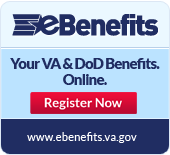Attention A T users. To access the menus on this page please perform the following steps.
1. Please switch auto forms mode to off.
2. Hit enter to expand a main menu option (Health, Benefits, etc).
3. To enter and activate the submenu links, hit the down arrow.
You will now be able to tab or arrow up or down through the submenu options to access/activate the submenu links.
Locator
Contact
Search
Employee Spotlight
March 17, 2023
Teresa Pittman, LCSW

Housing and Urban Development-VA Supportive Housing (HUD-VASH) Regional Coordinator
VHA Homeless Programs Office
How long have you worked for VA?
This past September marked 25 years.
What has your role been like as a HUD-VASH Regional Coordinator?
It has been constantly evolving since the beginning, and it has grown tremendously. We started off with 10,000 HUD-VASH housing choice vouchers in 2008 and we are at nearly 107,000 vouchers now with more allocations coming out.
Nowadays, I largely support the Network Homeless Coordinators in the field, disseminating guidance, helping with problem solving, evaluating clinical complexities, and doing whatever we can to help them be successful with implementing the program.
As your VA career winds down and as you approach retirement, what is one of your proudest memories working with VA?
I’m proud of the role I played in getting Tribal HUD-VASH off the ground. The VA Black Hills Health Care System came to me with a problem – they had Veterans who were Native American who wanted to live on the reservation, but they weren’t able to use their vouchers there. We were able to house them up to the boundary, but we couldn’t get them onto the reservation, which is where their natural supports and culture were.
I went to HUD, told them the problem, and asked how we could get things set up to make it work. After a couple years of them talking with their lawyers and looking at the various issues, they finally came up with a way to do that. That's how Tribal HUD-VASH got started.
Why has advocating for AI/AN Veterans been important to you?
Advocating for Native American Veterans is especially important to me because my husband is Native American, a member of the Yankton Sioux Tribe. He grew up in Arizona and has family who are members of the tribe. He is a member of the tribe through his grandfather and our children are members of the Loyal Shawnee through his grandmother.
Although I’m not personally Native American, I’ve always had a sense of the injustices that have been done to people by people like me. I think it’s important to do what we can to improve lives. Native American people have not only been nearly annihilated but have continued to struggle as a result of that historic trauma. Their housing is underfunded. Their healthcare is underfunded. We have a responsibility as the government to be taking care of these things. It’s part of the treaties promising these things, and we don’t live up to that in the way we should.
The poverty rate is also worse than it probably is for anyone else in this country. We now have about 70% of the Native American population living in urban areas because there are few jobs on the reservation. In addition to that, it’s difficult to find decent housing, grocery stores, and more in tribal areas.
Do you have any regrets or projects you wish you had more time to finish?
An idea I have right now is a project with tribes and employment.
There are very limited jobs on the reservation, and there are 300,000 jobs needed in construction. On top of that, housing is a huge issue in tribal areas. They just don't have enough of it, and they need to construct and renovate housing. I like the idea of helping to teach these skills to people, then they have people to do these jobs.
I'm not an original thinker on this, but it’s something I’ve seen more and more about over the years when we talk about the need for jobs. I’d like to have this pathway to help Native American Veterans. Giving them the training to both serve the reservation and have a sustainable career is something that is desperately needed right now.
After you retire in April 2023, what do you hope people will remember you for?
That I was responsive to problems and tried to figure out solutions. Whatever the question was, if I didn't know the answer, I'd find the answer.
What advice to do have for us as we continue with the work of ending Veteran homelessness?
Everything is mission-driven. Look for opportunities and don’t be afraid, even if you don't feel like you have the knowledge or the ability to do it. Try it anyway. See where you go with it. Get all the experts involved who can help make it happen.





























